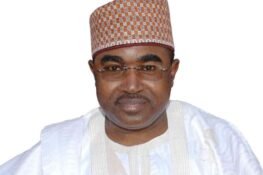The United Nations Children’s Fund (UNICEF), says only 50 per cent of children under five years in Nigeria have been registered at birth.
A report released by the UNICEF, reveals that children in Africa have the lowest birth registration rate globally, with Nigeria accounting for 11 per cent of the rate in West Africa.
According to the UNICEF, these low figures indicate that Nigeria needs to focus attention on addressing the structural, normative, and operational challenges of birth registration.
“In Nigeria, more than 50 per cent of the births of children under five remain unregistered. Globally, the births of 166 million children under five have never been recorded.
“Children on the African continent have the lowest birth registration rate in the world, with only 44 per cent of children registered at birth; and millions of deaths also go unaccounted for each year.
“Nigeria alone accounts for 11 per cent of unregistered children in West Africa.”
The report stated that birth registration is a very important process as it “gives every child a unique identity and better access to health, education, and social protection services.”
Peter Hawkins, the UNICEF Nigeria Country Representative, in the report, urged the Federal Government to ensure every child counts, to enable them benefit from these services.
“We need to work together to ensure effective coordination to make this happen.
“Functional systems that allow for the sharing of data across information management databases that are integrated with other vital services are necessary to push the birth registration rate in Nigeria up and make sure every child is counted.”
The country representative asserted that every child had the right to a name, nationality, and legal identity, therefore, working together remained vital to enable the country to meet its Sustainable Development Goals (SDGs) obligation.
The SDG targets 16.9 calls on governments to ensure legal identity for all including birth registration by 2030.
The report commended the effort made so far by the relevant agencies in Nigeria to achieve this target.
These efforts, according to the report, include the establishment of a partnership between the Nigeria Population Commission (NPC), Civil Registration, and Vital Statistics (CRVS), entities with support from UNICEF.
The report noted that a Roadmap for Digital Universal Birth Registration has been created through the partnership, in Nigeria.
“The roadmap lays out a clear vision, delineates the roles of different government agencies, builds the government’s capacity to deliver, formulates an action plan, sets a timetable and milestones, and optimises the cost of the digital birth registration process in the country.
“All of this is in advance of the implementation deadline of the UN SDGs,” the UN body said in the report.
(NAN)








